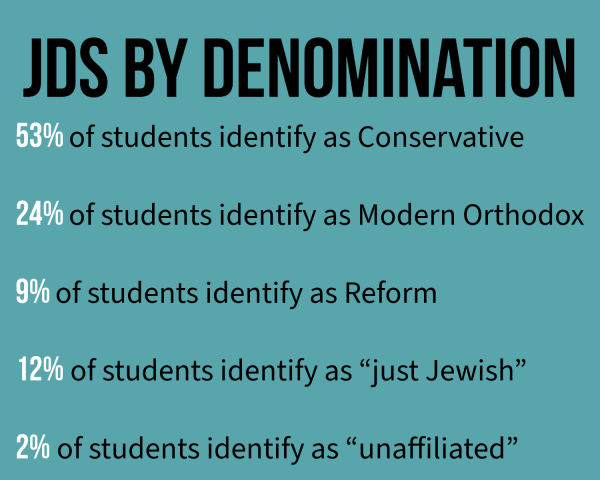Arab-Israeli Conflict class should be required
Whether we realize it or not, going to a Jewish school inherently isolates many of us from exposure to negative and hateful speech surrounding Israel. When we leave the confines of the school, both before and after graduation, we must learn to effectively advocate our beliefs through informed and constructive debate rather than speaking from a place of ignorance.
The History of the Arab-Israeli Conflict course teaches these skills, along with an understanding of the conflict and its nuances, free from bias. This, among other reasons, is why I strongly believe that Arab-Israeli Conflict should be a required course for all CESJDS high school students.
According to Aaron Bregman, the current teacher of the course, the class trains students to speak their mind “along with evidence” rather than “stating an opinion with no basis of argument.” This not only enhances student’s abilities to debate their ideas surrounding Israel, but also prepares them to feel confident in advocating for their beliefs in a variety of situations.
A primary reason for going to a Jewish day school is to receive a Jewish education, but a Jewish history curriculum that cuts off before the 21st century does not suffice. As Jews, we have a duty to educate ourselves on Jewish homeland of Israel beyond its historical narrative. If we continue to end the curriculum before critical events in Israel’s existence such as the first Intifada, is it even accurate to say that our school teaches the history of Israel?
Beside effectively laying the historic groundwork for conflict in the Middle East, Arab-Israeli Conflict gives students a contemporary understanding of the conflict. For example, Bregman often provides newspaper articles that connect history to current events, something very rare to find in most history curriculums.
One of the most valuable aspects of the class is that it encourages students to develop their own opinions surrounding the conflict. Many assignments are framed around developing sound arguments and challenging others, such as writing an Op-Ed in response to governmental decisions or simulations to work towards solving peace in the Middle East. These assignments offer students opportunities to perfect articulating their arguments far beyond the parameters of any another class.
“It’s not just projecting your voice, but being able to stop your voice and listening to other points of views as well,” Bregman said.
According to Dean of Students Roslyn Landy, many alumni push for Arab-Israeli Conflict to be a required course. While it may be challenging to fit with other required high school courses, it is clear that the benefits of making the course required are enough to justify adding an additional scheduling component.
This story was featured in the Volume 35, Issue 6 print edition of The Lion’s Tale, published on March 30, 2018.







